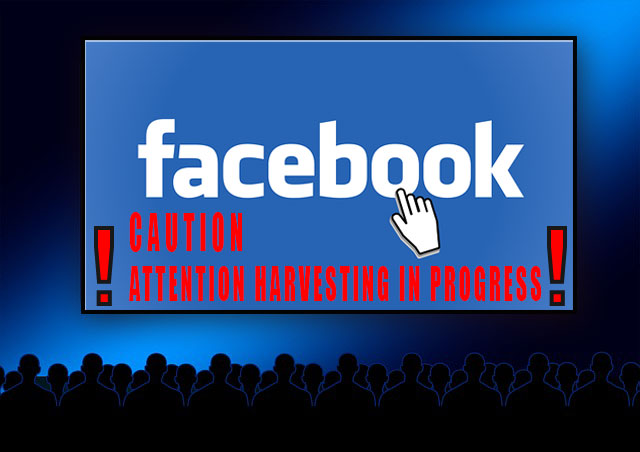Social media is hard to ignore these days. From a marketing perspective its a goldmine. A direct route to the minds of customers with your brand message. But from a human perspective, social media is beginning to be the source of as many problems that it is solving. People especially kids are becoming addicted to checking their news feeds which is not only damaging their productivity but also their mental health.
The Social Media Backlash
Facebook, Google, as well as other social media networks, are receiving a lot of negative press in the last year. This is in response to the spreading of fake news, lack of content regulation, trolling, bullying and suicides, as well as the many surveys emanating from the media suggesting social media is bad for our mental health. Not to mention, commentators attribute Trump’s successful presidential campaign to a very successful Facebook campaign strategy. Conspiracy theorists also suggest a plethora of Russian ads priming American voters to vote Trump also helped.
Social Media platforms harvest attention. The more time you spend online, the more ads you expose yourself to. Which means the more money the social network makes in advertising revenue. Its worth recognizing social media also does a lot of good such as connecting people and providing a platform for companies to reach their target market as well as serving ads to people for products they might be interested in.
Hooking Attention
“When we look at the thought process of setting up facebook it was - How do we consume as much of your time and attention as humanly possible. And that means we’re going to have to give you a little dopamine hit every once in a while because someone liked a post or comment or whatever. That’s going to get you to contribute more content which will create more likes and comments. It’s a social validation feedback loop. ” - Sean Parker (Former Facebook Investor)
To keep people using social media, they use psychological tactics that exploit human vulnerabilities. As humans, we’re innately social and unconsciously crave acceptance from our peers and society. We like to feel like we belong and play an important role in the world. I read a great book “Hooked: How to Build Habit-Forming Products” by Nir Eyal which discusses the many psychological tactics that are used by companies to get people to try or keep using their products.
Most tactics focus on providing dopamine hits to people giving them a momentary feeling of accomplishment or pleasure. In the social media world, this equates to receiving likes, comments, and attention which creates the endless quest to receive more. This leads to people no longer thinking just reacting and trying to get their next social validation “fix”.
The Social Media Circus
Numerous studies proclaim the dangers of social media to our mental health. Social media provides a vehicle for people to present a fairytale depiction of their life. The illusion of the perfect life where they have the best partner ever, always look incredible and live lives so adventurous that it’s like an Indiana Jones movie. This makes their followers feel inadequate while they feel empty as the life they’re depicting isn’t real. In psychological circles, they’re grasping at the strange realization that social media is making people more narcisstic and insecure at the same time.
Facebook, in particular, is receiving a lot of flak at the moment. Early Facebook investor Sean Parker and former Facebook executive Chamath Palihapitiya have been vocal critics in their role of building the social network expressing regret on its impact on society.
“I feel tremendous guilt ( at being involved in building Facebook)… I think we all knew something bad was going to happen. The short-term dopamine driven feedback loops that we have created are destroying how society works… No cooperation, no civil discourse, mistruth, misinformation… My solution is I just don’t use these tools anymore. I just innately didn’t want to get programmed so I tuned it out.” - Chamath Palihapitiya ( Former Facebook Executive)
How Apple Handles Social Media
“I don’t have a kid, but I have a nephew that I put some boundaries on…There are some things that I won’t allow; I don’t want them on a social network. The internet has enabled so much and empowered so many. But it can also be a place where basic rules of decency are suspended and pettiness and negativity thrive.” - Tim Cook (CEO Apple)
Anyone running a business is in a difficult predicament regarding social media. They need it to spread the word about their business and to engage their customers. However, they’re also limited with time and don’t want to get sucked into this vortex. In this regard, Apple’s position on social media might be quiet valuable. Steve Jobs was somebody who was profoundly aware of the dangers of too much technology and social media use for kids. He banned his own kids from using Apples Ipad and iPhone until they were mature enough to control their use.
As a brand, Apple operates very tight control over their social media use. They have a Facebook page but aren’t very active on it. As a luxury brand product, they can perhaps afford this. They have a Youtube page which they frequently update but disable comments. This means they do not cede control to trolls or negative comments which might cloud peoples perception of the brand. They ensure at all costs that their message reaches you as intended.
Should We Be More “Anti Social”?
This article is a little ironic. I’m not an avid user of social media. I monitor it from a distance because as a marketer it’s important I know how to use the medium to help businesses promote themselves. Much like Chamath, I pulled back from social media years ago as I didn’t want to be programmed and wanted to protect myself from Ads, shallow friendships, and social comparisons.
Recently I’ve even gone further and try to limit the use of my mobile phone. Observing peoples behavior I notice how so many people are constantly glued to their phone and never notice anything around them. Now I consciously choose not to use my phone to fill the boring parts of life like waiting in a cafe or in line at a Supermarket. Instead, I just observe whats around me and stay awake and present in the moment.
So put the phone away. Switch off the social media apps. And use your mind to tackle the important problems in life. Be anti-social - if only anti-social media.

